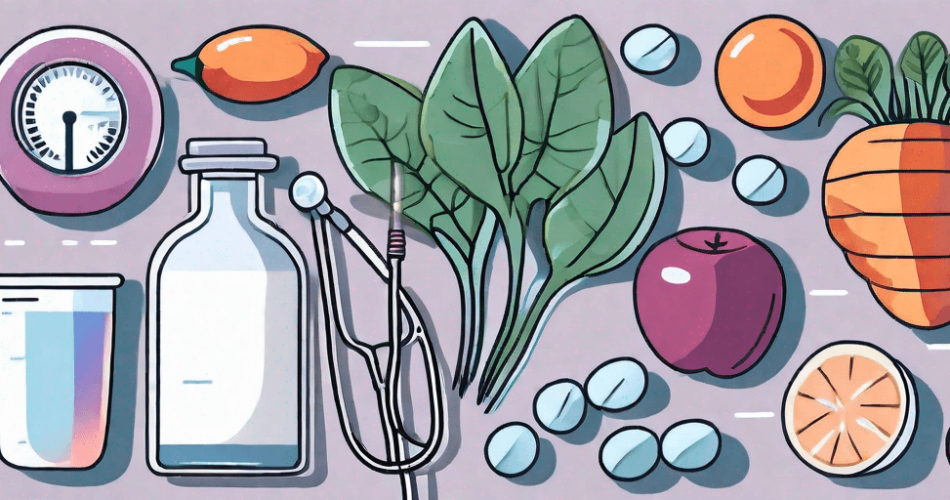Nephrolithiasis, is a painful condition in the kidney that affects millions of people worldwide. Given its complex nature, it can be challenging for individuals to identify the suitable treatment for them. In this article, we will explore the different approaches to nephrolithiasis treatment.
Get to know the medical options and self-care strategies available, and make informed decisions about managing this condition effectively.
Understanding Nephrolithiasis: Causes and Symptoms
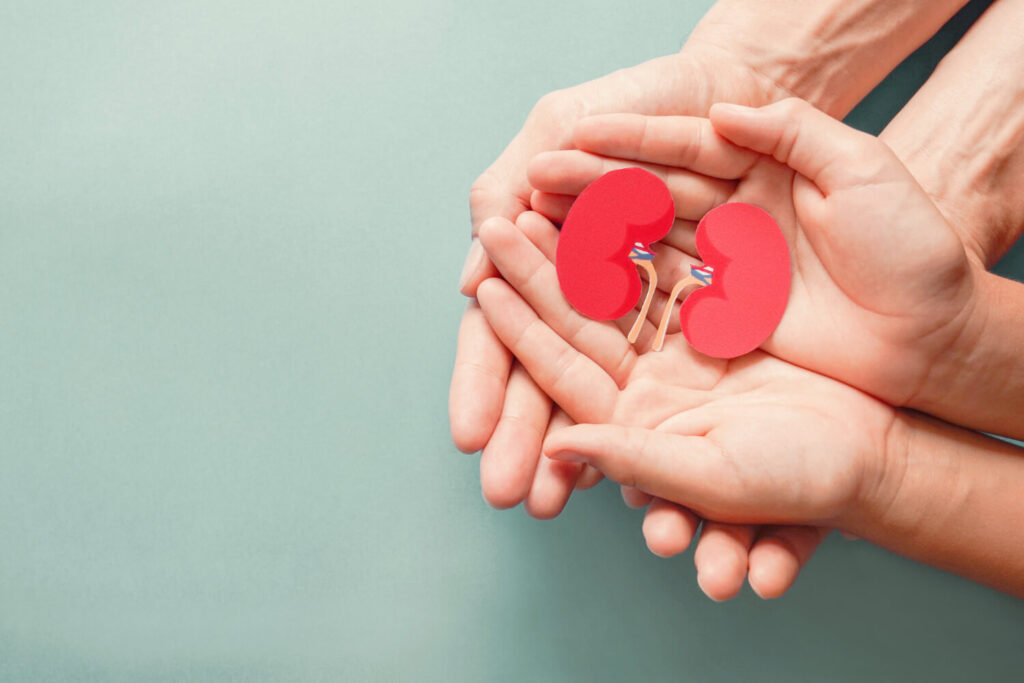
Nephrolithiasis refers to the formation of solid deposits within the kidneys, known as kidney stones. These stones occur when certain substances in the urine, such as calcium, oxalate, and uric acid, become concentrated and crystallize. Various factors contribute to the formation of kidney stones, including genetics, dietary habits, and medical conditions.
Genetics play a significant role in determining an individual’s susceptibility to developing kidney stones. If you have a family history of kidney stones, you may be at a higher risk of experiencing them yourself. However, it’s important to note that lifestyle factors, such as diet and hydration, also play a crucial role in the formation of these painful stones.
Given your history, it would be best to look out for the signs that affirms this condition. Common symptoms of nephrolithiasis include intense pain in the back or side, blood in the urine, and frequent urination. The pain experienced during a kidney stone episode is often described as so severe that it may cause nausea and vomiting.
The Science Behind Kidney Stones
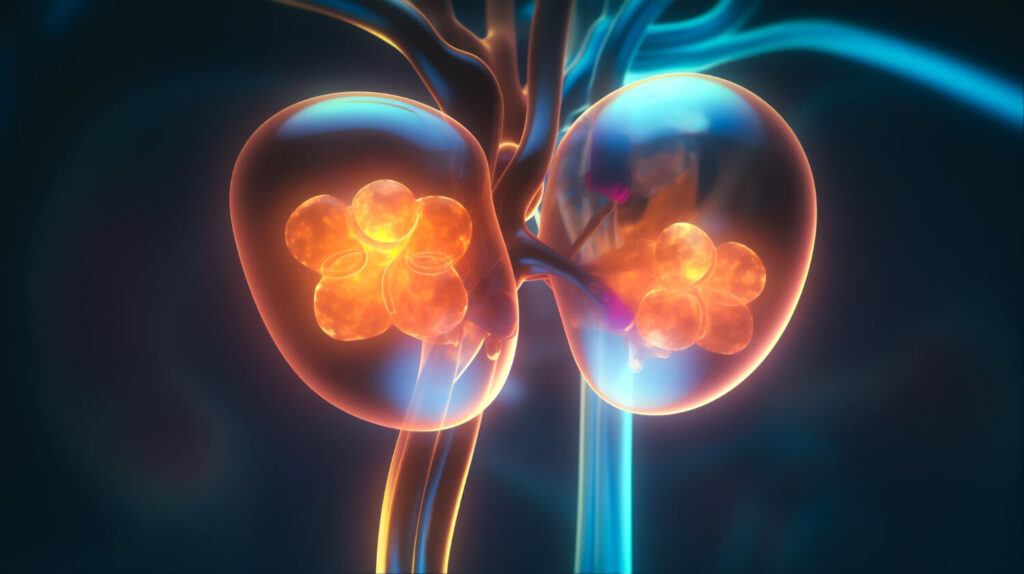
Kidney stones form when certain substances in the urine, such as calcium, oxalate, and uric acid, exceed their solubility limits and crystallize. These types of kidney stones vary from each other. Let’s introduce each of them below!
Calcium Stones
Calcium stones, as mentioned earlier, are the most common type. They can form due to various factors, including high levels of calcium in the urine, high levels of oxalate in the urine, or a combination of both. Oxalate is found in many foods, such as spinach, rhubarb, and beetroot. If you consume these foods in excess or have a condition that increases oxalate production in your body, you may be at a higher risk of developing calcium oxalate stones.
Uric Acid Stones
Meanwhile, uric acid stones form when there is an excess of uric acid in the urine. Uric acid is a byproduct of the breakdown of purines, which are naturally occurring substances found in certain foods. If your body produces too much uric acid or if your kidneys are unable to effectively remove it from your bloodstream, uric acid stones may develop.
Struvite Stones
On the other hand, struvite stones, as mentioned earlier, are commonly associated with urinary tract infections. These stones form when certain bacteria, such as Proteus or Klebsiella, produce ammonia in the urine. The ammonia raises the pH level of the urine, creating an environment conducive to the formation of struvite stones. It’s important to treat urinary tract infections promptly to prevent the development of these stones.
Recognizing the Signs of Nephrolithiasis
Early recognition of nephrolithiasis symptoms is crucial for timely intervention and management. The most common symptom is severe pain, known as renal colic, which typically starts suddenly and radiates from the back or side to the lower abdomen. This pain may fluctuate in intensity and be accompanied by urinary symptoms like blood in the urine, frequent urination, or urgency.
Imagine waking up in the middle of the night with excruciating pain in your back that seems to radiate to your lower abdomen. You rush to the bathroom, only to find blood in your urine. The pain is unbearable, and you’re constantly running to the toilet, feeling like you can’t empty your bladder completely. These are just some of the signs that may indicate the presence of kidney stones.
Other signs of nephrolithiasis include cloudy or foul-smelling urine, persistent lower back pain, and fever. Cloudy urine may indicate the presence of pus or bacteria, which can be a sign of an infection. Persistent lower back pain that doesn’t go away with over-the-counter pain medication should also raise a red flag. Additionally, if you experience a fever along with any of the other symptoms, it may indicate a more severe infection or obstruction caused by the kidney stone.
It is essential to consult a healthcare professional if you experience any of these symptoms to determine the appropriate course of action. Early diagnosis and treatment can help alleviate the pain and prevent complications associated with kidney stones.
Medical Treatment Options for Nephrolithiasis
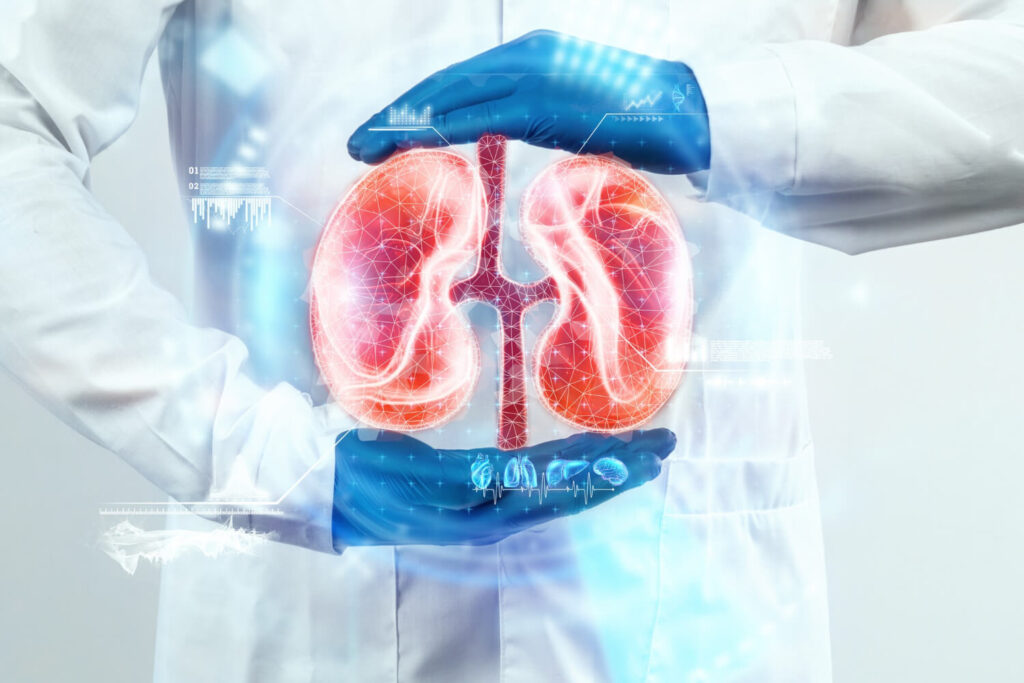
Medical options for nephrolithiasis treatment aim to alleviate symptoms, prevent stone growth, and promote stone elimination. These options include medication therapies and surgical interventions, both of which have their benefits and considerations.
Medication Therapies for Kidney Stones
Medication therapies for kidney stones focus on preventing stone formation, easing pain, and aiding stone passage. Depending on the type of stone and individual factors, healthcare professionals may prescribe medications like thiazide diuretics to reduce calcium excretion, allopurinol to lower uric acid levels, or potassium citrate to increase urinary citrate levels, which inhibits stone formation.
In addition to these targeted medications, healthcare professionals may prescribe pain relievers to manage renal colic and anti-nausea medications to alleviate associated symptoms. It is important to follow the prescribed medication regimen and consult a healthcare professional for dosage adjustments or potential interactions with other medications.
Surgical Interventions as Nephrolithiasis Treatment
In certain cases, surgical interventions may be necessary to treat kidney stones that cannot be passed naturally or cause persistent pain and complications. Common surgical interventions include:
- Extracorporeal Shock Wave Lithotripsy (ESWL): This non-invasive procedure uses shock waves to break large kidney stones into smaller fragments, allowing for easier passage through the urinary tract.
- Ureteroscopy: Ureteroscopy involves using a thin tube with a camera to visualize the urinary tract and remove or break up kidney stones. It is commonly used for stones located in the ureter or kidney.
- Percutaneous Nephrolithotomy (PCNL): PCNL is a minimally invasive procedure in which a small incision is made in the back to access the kidney and remove large stones. It is typically recommended for complex or larger stones.
It is important to discuss the benefits, risks, and recovery process of surgical interventions with a healthcare professional to ensure informed decision-making and appropriate post-operative care.
Self-Care Strategies for Nephrolithiasis

While medical treatments play a vital role in managing nephrolithiasis, self-care strategies are equally important in preventing stone recurrence and promoting overall kidney health. These strategies focus on dietary changes and lifestyle modifications.
Dietary Changes to Prevent Kidney Stones
Modifying dietary habits can help prevent the formation of kidney stones and reduce the risk of stone recurrence. Healthcare professionals may recommend dietary adjustments based on the specific type of stone and individual factors. Some general dietary recommendations include:
- Increasing fluid intake to maintain adequate hydration and promote frequent urine production, which helps flush out substances that contribute to stone formation.
- Reducing sodium intake to decrease the amount of calcium excreted in the urine.
- Limiting oxalate-rich foods, such as spinach, rhubarb, and chocolate, as high oxalate levels can lead to calcium oxalate stone formation.
- Consuming adequate calcium from dietary sources, as low-calcium diets can increase the risk of stone formation.
- Limiting animal protein consumption, as high protein diets can increase excretion of uric acid and promote stone formation.
It is crucial to work with a registered dietitian or healthcare professional to develop a personalized dietary plan that aligns with individual needs and preferences.
Lifestyle Modifications for Nephrolithiasis Treatment
Alongside dietary changes, certain lifestyle modifications can equate to nephrolithiasis treatment and improve overall kidney health. These modifications include:
- Engaging in regular physical activity to maintain a healthy weight and reduce the risk of stone formation.
- Avoiding excessive alcohol consumption, as it can increase urine production and lead to dehydration.
- Quitting smoking, as smoking can impair kidney function and contribute to stone formation.
- Managing stress levels through techniques like meditation, deep breathing exercises, or seeking support from mental health resources.
Adopting these lifestyle modifications can not only help prevent kidney stone recurrence but also contribute to overall well-being.
The Role of Hydration in Nephrolithiasis Prevention
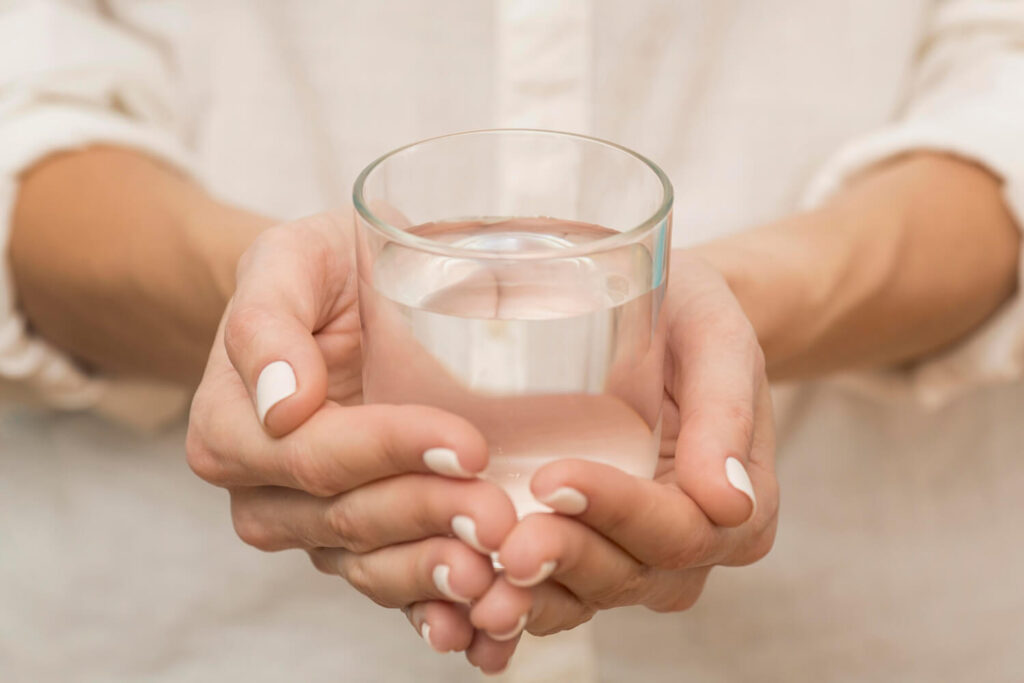
One of the most crucial aspects of nephrolithiasis prevention is maintaining adequate hydration. Proper hydration supports optimal kidney function and helps prevent the concentration of substances that contribute to stone formation.
Understanding the Importance of Fluid Intake
Drinking an adequate amount of fluids, especially water, dilutes urine and promotes urine production, flushing away potentially stone-forming substances. Healthcare professionals generally recommend drinking at least eight glasses of water per day, but individual hydration needs may vary based on factors like climate, physical activity levels, and overall health.
Best Drinks for Kidney Health
When it comes to hydrating the kidneys and promoting kidney health, not all beverages are created equal. Some drinks can provide additional benefits that support overall kidney function:
- Water: Plain water is the best choice for hydrating the kidneys and diluting urine.
- Lemon water: Adding lemon juice to water can increase citrate levels in the urine, which inhibits the formation of certain types of kidney stones.
- Herbal tea: Some herbal teas, such as dandelion tea or nettle tea, may possess diuretic properties and support kidney function.
- Cranberry juice: Cranberry juice has been traditionally used to prevent urinary tract infections, which can contribute to the formation of certain types of kidney stones.
It is important to note that excessive consumption of certain beverages, such as sugary sodas or caffeinated drinks, can have negative effects on kidney health. Moderation and balance are key in maintaining optimal kidney function.
The Psychological Impact of Nephrolithiasis
Living with nephrolithiasis can have a significant psychological impact on individuals, as the condition often involves chronic pain, dietary restrictions, and potential recurrence. It is crucial to address the psychological aspects of this condition and provide appropriate support for patients.
Coping with the Stress of Chronic Illness
Coping with the stress of chronic illness can be challenging for individuals with nephrolithiasis. It is important to develop healthy coping strategies and seek support from healthcare professionals, mental health resources, or support groups. Strategies like stress management techniques, maintaining a positive mindset, and open communication with loved ones can make a significant difference in managing the psychological impact of nephrolithiasis.
Mental Health Resources for Patients with Kidney Stones
Support for mental health is an integral part of managing nephrolithiasis. This support can come from various sources, including:
- Therapy: Individual therapy sessions, such as cognitive-behavioral therapy, can provide a safe space to address psychological challenges associated with nephrolithiasis.
- Support groups: Joining support groups with individuals who share similar experiences can provide emotional support and practical tips for managing the condition.
- Online resources: Online platforms, such as forums and educational websites, offer valuable information and a sense of community for individuals with nephrolithiasis.
- Social support: Building a strong network of friends, family, and healthcare professionals who understand nephrolithiasis can provide ongoing support and understanding.
Remember, addressing the psychological impact of nephrolithiasis is just as crucial as managing the physical symptoms. Seeking support and prioritizing mental health can lead to improved overall well-being and coping abilities.
In Conclusion
Nephrolithiasis, or kidney stones, is a common condition that requires comprehensive treatment approaches consisting of medical options and self-care strategies. Through a combination of interventions, individuals can effectively navigate the challenges associated with nephrolithiasis and improve their quality of life.
If you suspect your condition to be related to nephrolithiasis, it would be best to seek a professional’s help. Book a consultation for immediate intervention strategies today!
Kidney Stones Quiz
Test your knowledge about nephrolithiasis treatment
Explanation
